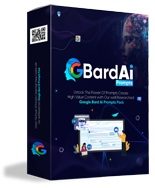
 License Type: Private Label Rights
License Type: Private Label Rights  File Type: ZIP
File Type: ZIP
 SKU: 65558
SKU: 65558  Shipping: Online Download
Shipping: Online Download
Sample Content Preview
Eating Disorder
"Understanding the Basics: What everyone should know about eating disorders, especially conditions like: Exploring the foundational knowledge about specific eating disorders such as [anorexia nervosa, bulimia nervosa, binge-eating disorder].
"Early Warning Signs: Identifying potential indications of eating disorders, focusing on behaviors like: Tips for recognizing the early symptoms of eating disorders, centering on actions like [excessive dieting, avoiding meals, ritualistic eating habits].
"Physical Consequences: Unraveling the detrimental health impacts of prolonged eating disorders, including issues like: Highlighting the physiological complications associated with chronic eating disorders, such as [osteoporosis, heart problems, kidney damage].
"Mental Health and Eating Disorders: Exploring the psychological components of disorders, especially elements like: Insights into the intertwined relationship between mental health and eating disorders, emphasizing aspects like [depression, anxiety, body dysmorphia].
"Treatment Approaches: Delving into therapeutic interventions for eating disorders, including methodologies like: Discussing effective treatment modalities for eating disorders, such as [cognitive-behavioral therapy, family-based therapy, medication].
"Role of Family and Friends: Understanding how close relations can assist in the recovery process, emphasizing strategies like: Providing guidelines on how loved ones can support someone with an eating disorder, focusing on approaches like [active listening, creating a safe environment, seeking professional help].
"Societal Influences: Assessing the impact of media and culture on the prevalence of eating disorders, especially in contexts like: Analyzing how societal norms and media representations can exacerbate eating disorders, in scenarios such as [fashion industry standards, social media comparisons, peer pressure].
"Prevention and Education: Strategies for reducing the onset of eating disorders in vulnerable populations, emphasizing interventions like: Sharing preventative measures and educational initiatives, like [school-based programs, awareness campaigns, early detection training].
"Recovery Journeys: Personal stories of individuals who have overcome eating disorders, highlighting turning points like: Narratives of resilience and recovery, spotlighting moments such as [seeking help, establishing a support system, achieving milestones in therapy].
"Nutritional Rehabilitation: Role of dietitians and nutritionists in the treatment of eating disorders, focusing on interventions like: Delving into the importance of proper nutrition guidance in the recovery process, and strategies like [meal planning, reintroducing foods, addressing nutritional deficiencies].
"The Myth vs. Reality: Debunking common misconceptions about eating disorders, focusing on beliefs like: Addressing and clarifying widespread myths, spotlighting false notions such as [only young women get eating disorders, eating disorders are a choice, one can tell someone has an eating disorder just by looking at them].
"Long-Term Recovery: Embracing life after an eating disorder and ensuring relapse prevention strategies like: Delving into the journey of long-term recovery, emphasizing strategies such as [consistent therapy, mindfulness practices, regular health check-ups].
"The Role of Environment: How surroundings and daily routines can influence eating behaviors, especially factors like: Investigating the impact of one's environment on eating habits, and the significance of elements like [peer groups, work stress, social events].
"Coping Mechanisms: Healthy ways to deal with emotions and triggers without resorting to disordered eating, highlighting methods like: Offering alternatives to negative coping tactics and underscoring positive approaches such as [journaling, meditation, talking to a friend or counselor].
"Support Groups: The significance of community in the healing journey of those with eating disorders, and how platforms like [] help**: Discussing the benefits of joining support groups and platforms such as [online forums, local group meetings, helplines].
"Co-occurring Disorders: Exploring the intersection of eating disorders with other mental health conditions like: Examining the linkage and co-existence of eating disorders with conditions like [depression, anxiety disorders, substance abuse].
"Cultural Perspectives: How eating disorders manifest across different cultures and the challenges faced by groups like: Understanding cultural nuances of eating disorders, focusing on specific communities or groups like [indigenous populations, non-Western countries, LGBTQ+ community].







